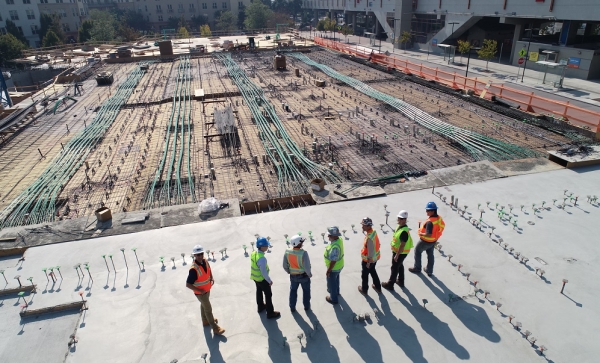Many construction companies are facing tough times in the current economic climate. The cost of living and interest rates are creating concern. Managing cashflow and profitability during the uncertainties of long term projects can be an ongoing challenge for many companies. An equally important challenge is knowing when it’s time to get advice on whether your company can survive or not.
In April 2024 Centrix reported the highest number of liquidations in nine years with construction companies leading the way. March 2024 liquidations included 56 construction companies. Centrix reported 486 construction company liquidations during the financial year ended 31 March 2024, compared to 415 in March 2023 and 262 in March 2022.
Construction companies often fail more than those in other industries during economic downturns or recessions due to several inherent vulnerabilities. Firstly, construction projects are typically capital-intensive and highly dependent on financing, which becomes scarce and more expensive during economic downturns. Secondly, construction companies face long project timelines with fixed costs but variable revenues, making them susceptible to cash flow issues when demand decreases. Thirdly, the industry is highly cyclical, closely tied to economic conditions and consumer confidence; when a recession hits, both residential and commercial construction projects are among the first to be postponed or cancelled.
Additionally, construction firms often operate on thin margins, leaving little buffer to absorb financial shocks. The combination of these factors—high fixed costs, dependency on external financing, project delays, and narrow profit margins—exposes construction companies to greater financial risk, leading to a higher rate of failure during economic downturns compared to companies in more stable industries.
If you are concerned about the state of your company then early action is critical. Taking steps to ensure your company remains financially sound will minimise the risk of an insolvent trading action. It may also improve your company’s performance.
The Inland Revenue have issued a warning on non compliance in the sector and advised of the consequences. They have advised that tax debt is high in the construction sector and 40,000 companies have overdue debt, returns or both and can expect to be followed up. A particular focus is on cash jobs.
Many people are unaware that there are serious penalties and consequences of insolvent trading including civil penalties and criminal charges. Insolvency can be established by either of the Cashflow or Balance Sheet tests. The company only needs to fail one of these tests to be insolvent.
The Cashflow test is simply whether the company can pay its debts when they fall due. The Balance Sheet test is whether the company's assets exceed its liabilities (including contingent liabilities).
As a director, you need to be aware of your options so that you can make informed decisions about your company’s future. If your company is insolvent you must not incur further debt in the name of the company or you could be made personally liable for that debt.
Options can include refinancing or capital injection, sale of assets, and restructuring or changing company activities. A further option is to enter into a company compromise with creditors whereby debt (in part or full) will be repaid over an agreed period of time. We regularly arrange such Compromises.
Sadly, the matter is often left too late and the only options left are to appoint a voluntary administrator, receiver or liquidator.
The best scenario is to avoid a crisis in the first place by seeking independent expert advice in respect of your duties and the options available.
If you are concerned that your construction company may be insolvent please contact one of our team at McDonald Vague to discuss your options.

